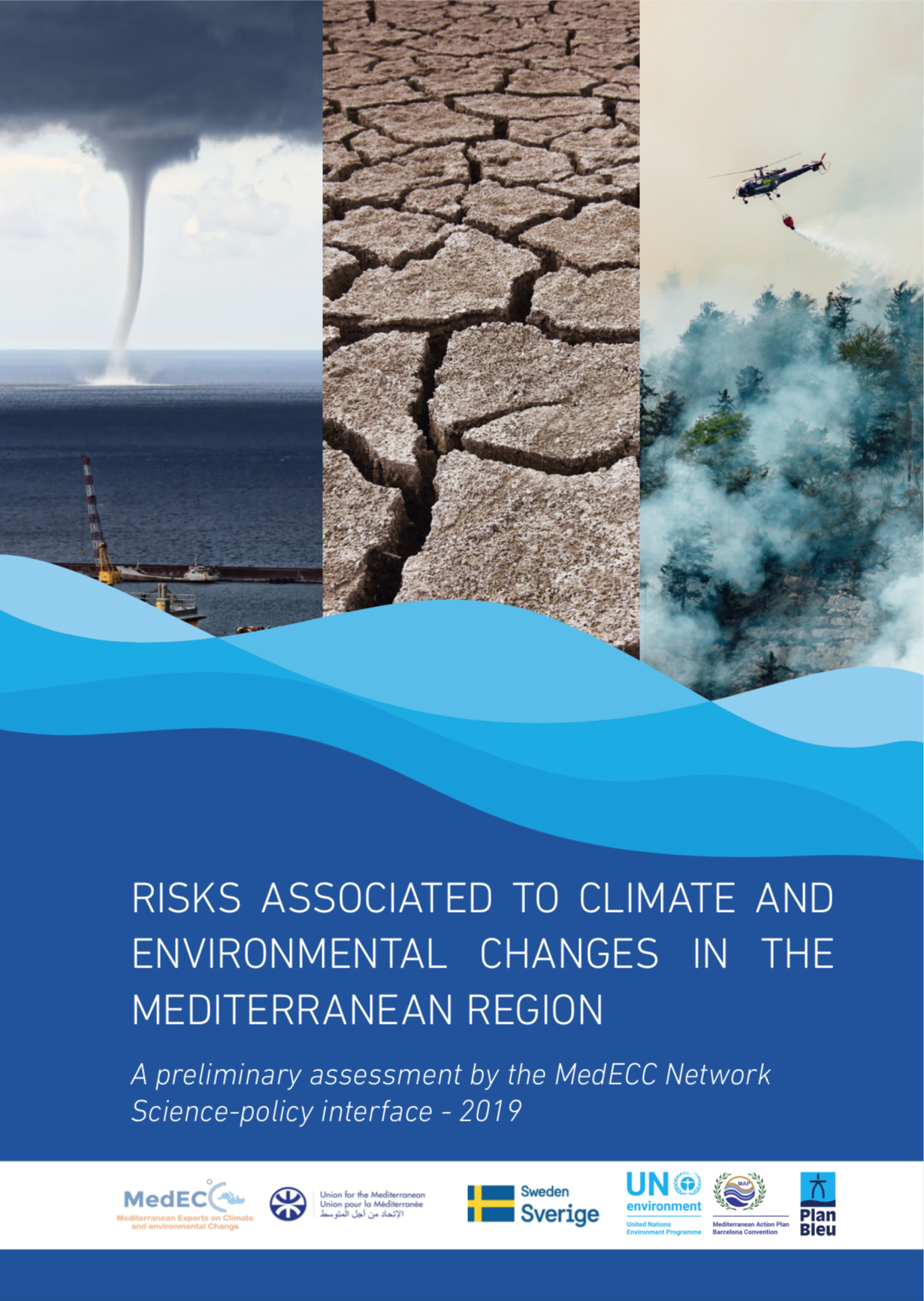The main results of this preliminary assessment reveal that:
- CLIMATE CHANGE: Average annual air temperatures are now approximately 1.5°C higher than during the preindustrial period, well above current global warming trends (+1.1°C). Without additional mitigation, regional temperature increase will be of 2.2°C in 2040, possibly exceeding 3.8°C in some regions in 2100. Summer precipitation will decrease by 10 to 30% according to the area. Extreme events (heat waves, droughts, floods and fires) become more frequent. Surface seawater temperature has recently increased by about 0.4°C per decade. The projections for 2100 vary between +1.8°C and +3.5°C in average compared to the period between 1961 and 1990. Sea level rises at about 3 mm per yearduring last decades. There are important uncertainties concerning global mean sea level rise in the future. Future projections range goes from 52 to 190 cm global mean sea level increase by 2100. Seawater acidification progresses.
- FOOD SECURITY: Food demand increases and crop, fish and livestock yields decline. Crops quality declines. Phenological cycle becomes shorter (for example grapevines). Regional imbalances in food security and food import dependence increase.
- WATER RESOURCES: Water resources are unevenly distributed around the Mediterranean. Freshwater resources quality and quantity decreases, while the demand for agriculture and tourism increases. This generates use conflicts. Floods and droughts risks increases.
- ECOSYSTEMS :Ecosystems are impacted by climate change, land use change, pollution and overexploitation. Aridity increases and systems become less productive. Fire risk increases. Falling water levels impact wetlands and freshwater ecosystems. Geographic distribution of terrestrial and marine species changes. Number of non-native marine species increases (especially those from the Red Sea). Mass mortality events occur mainly in coralligenousdue to high water temperatures. Sea acidification has a negative impact on carbonate shells and skeletons.
- HUMAN SECURITY: Coastal risks result from rising sea level, storm-surge, flooding, and local land subsidence. Fire risk increases for people living at the forest limit. Social conflicts may be aggravated by droughts. Limited resources and conflicts may lead to large-scale human migrations. Southern and eastern Mediterranean countries are often more vulnerable.
- HUMAN HEALTH: Heat-related illnesses and fatalities become more frequent, especially in the cities (urban heat-island effect). Climate change impacts the emergence of vector- and water-borne diseases. Air, soil and water quality deteriorate. Pollen allergies expand. Sanitary conditions may deteriorate because of societal and political situation.
Download the MedECC booklet (in English)
Download the MedECC booklet (In French)
Download the MedECC booklet (in Arabic)

